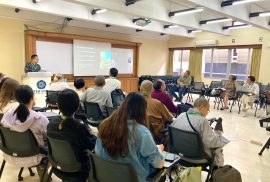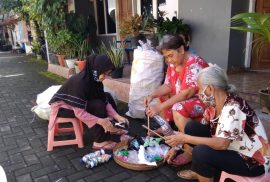Meneroka Diplomasi Buddhis dalam Sejarah Asia Modern
Yulianti – 20 Agustus 2024
Dalam sejarah kolonialisme di Asia modern, jejaring dan aliansi tidak hanya terjadi melalui jaringan negara kolonial, tetapi juga aliansi kelompok masyarakat yang ada di dalamnya. Salah satu bentuk aliansi yang berperan penting dalam geopolitik tersebut ialah diplomasi buddhis.
Dinamika tersebut menjadi bahasan utama dalam panel “Friends in Dharma: Buddhist Diplomacy and Transregional Connection in Modern Asia”. Panel ini merupakan bagian dari kluster tema Inter Area/Border Crossing pada “AAS in ASIA Conference”di Universitas Gadjah Mada, Yogyakarta, Indonesia pada 9–11 Juli 2024. Mengambil latar belakang sejarah Asia modern, panel Buddhist Diplomacy ini memfokuskan kajian pada kiprah komunitas agama yang berasal dari kalangan yang berbeda-beda dalam membentuk jaringan, aliansi, dan kerja sama di Asia pada pertengahan abad ke-20 sampai ke-21. Jaringan dan hubungan-hubungan kelompok inilah yang kemudian dimaknai sebagai buddhist diplomacy (diplomasi buddhis) yang melibatkan individu, kelompok, dan negara-negara buddhis di Asia. Keberadaan diplomasi buddhis ini mempengaruhi hubungan transregional dan pertukaran budaya dari abad ke-20 hingga abad ke-21 di Asia.







